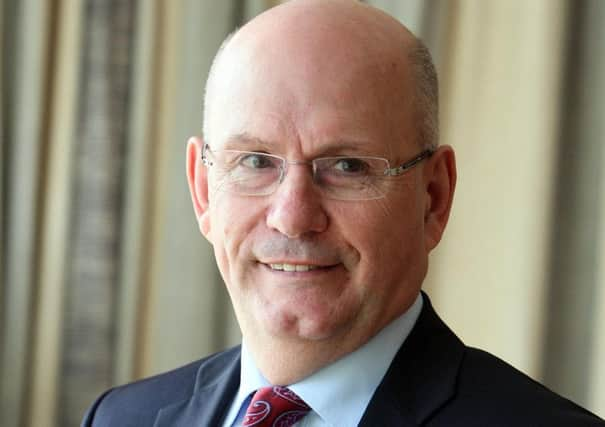Sam McBride: Less candid, politician-friendly health report more likely to be implemented


The Transforming Your Care (TYC) report by senior NHS executive John Compton was brutally frank about what needed to be done – but his central proposals were politically problematic.
In summary, Mr Compton said that Northern Ireland had too many major hospitals, most of which were not large enough to sustain the level of expertise necessary to provide the best care for patients.
Advertisement
Hide AdAdvertisement
Hide AdIn effect, he argued that in some instances people were dying because they were going to their local hospital, when they would be better served if that facility was provided further away but to a higher standard.
Initially, Mr Poots enthusiastically supported the proposals (as did most other parties, though perhaps without understanding the report’s implications), even leading from the front by slashing the opening hours of his local A&E department in Lagan Valley.
But over time, political opposition – both from within the DUP and from rivals – saw each suggestion of downgrading any particular health facility met with loud opposition.
Three years on, Stormont commissioned another report, this time by Sir Liam Donaldson, which largely endorsed Mr Compton’s findings.
Advertisement
Hide AdAdvertisement
Hide AdHaving received that, the then finance minister, Simon Hamilton, announced that he had appointed Professor Bengoa and a panel to produce another report with recommendations about how the NHS should be changed.
Five years on, yesterday’s Bengoa report borrows liberally from Mr Compton’s terminology and ideological assumptions, but is nowhere near as clear about some of the most politically unpalatable reforms.
Although in the small print, Prof Bengoa endorses Mr Compton’s view of hospital closures, that is not what the report focuses on. In fact, the report actually says “this work is not about closing hospitals” before going on to say that to improve health care “in some cases this may mean that some buildings/hospitals will close”.
That decision has been long-fingered, but with the promise of more involvement for clinicians in the decision – something which may make it easier to present.
Advertisement
Hide AdAdvertisement
Hide AdHowever, if the answer is as obvious as these reports all say, why further delay?
Yesterday’s report also shows how few ideological differences there seem to be between Northern Ireland’s parties on the issue of health.
The health department has moved from being under what is supposedly the most right-wing major party, the DUP, to the most left-wing party, Sinn Fein.
Yet what has really changed? As well as sharing overwhelmingly similar strategic visions for the future of the NHS – Compton and now Bengoa – the parties appear to have few ideological differences about how the health service is run on a day to day basis.
Advertisement
Hide AdAdvertisement
Hide AdYesterday, for instance, Michelle O’Neill made clear that use of private health care firms – which she euphemistically referred to as “the independent sector” – would be given contracts to cut waiting lists.
There has been one fundamental difference which means that in five years’ time there is likely to have been fairly radical health change: this is a more united Executive which knows that it faces an Opposition.